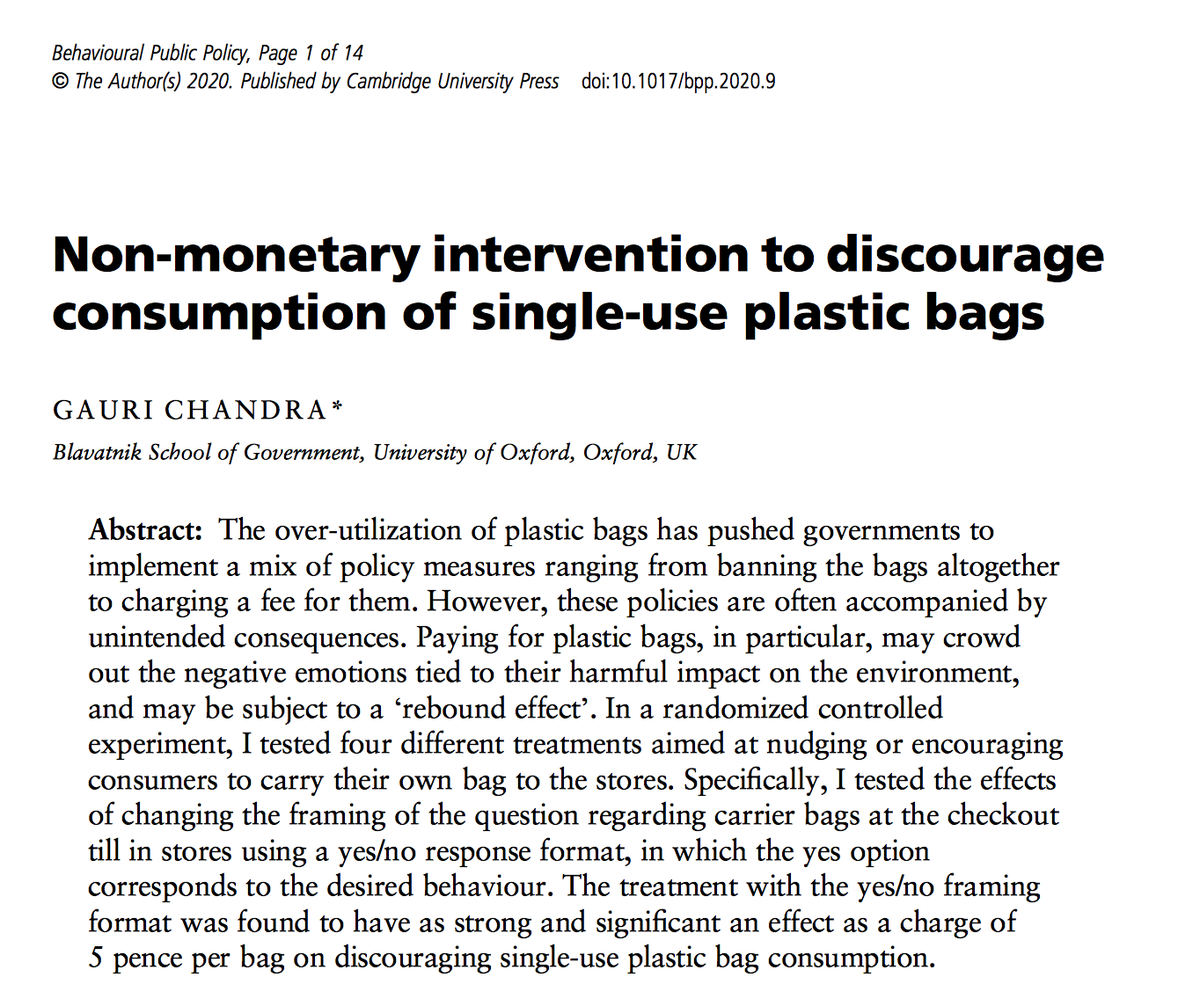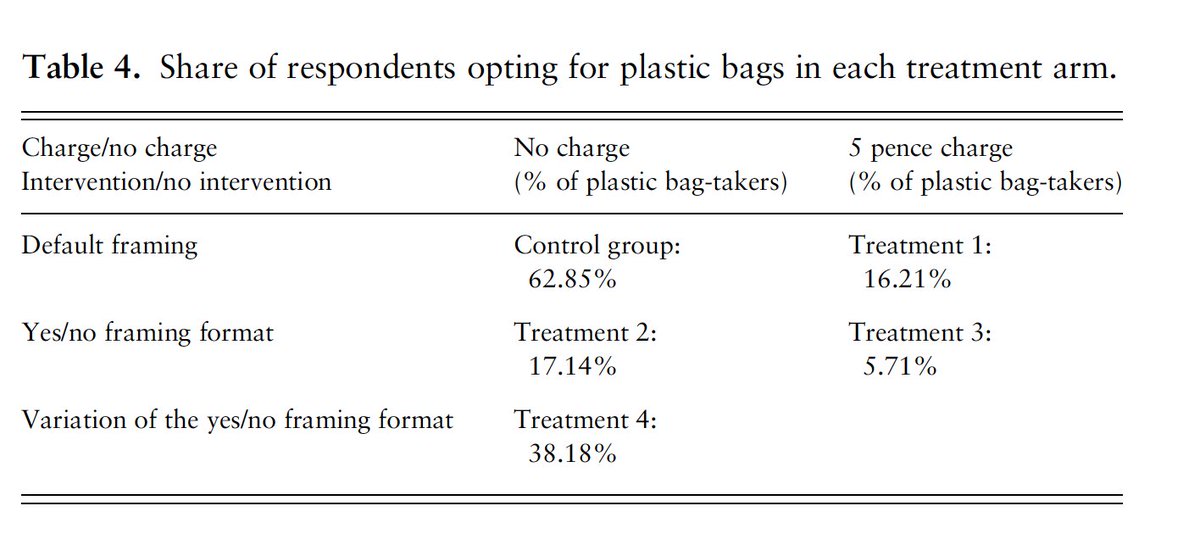I’m excited to share that my MSc thesis on discouraging consumption of single-use plastic bags is now published in @BPPjournal!
I show how a non-monetary intervention can foster a commitment to reuse carry bags, & find it to be as effective as a charge of 5 pence per bag. (1/12)
I show how a non-monetary intervention can foster a commitment to reuse carry bags, & find it to be as effective as a charge of 5 pence per bag. (1/12)
Here& #39;s why it& #39;s important: The 5p charge for single-use plastic bags seems to be a success on paper, but 7 of the top 10 UK supermarkets INCREASED their plastic footprint in 2019.
1.5 billion plastic & #39;bags for life& #39; were sold in 2019 itself, ~54 per UK household @EnvAgency (2/12)
1.5 billion plastic & #39;bags for life& #39; were sold in 2019 itself, ~54 per UK household @EnvAgency (2/12)
The intervention I test targets the framing of the question regarding plastic carry bags that we encounter at the check-out till. Most grocery stores in England frame the question as: “How many plastic bags do you need?”, which I call the default framing in my experiment. (3/12)
Framing the question in this manner could imply that taking plastic bags is the norm, and reinforce the very behaviour that the government aims to discourage. I reframe the question using a binary yes/no response format, where yes corresponds to the desired behaviour. (4/12)
“Will you be bringing your own bag to the store? - Yes / No, I’ll need a plastic bag” is likely to convey that bringing one’s own bag is expected of individuals & might increase the likelihood of participants visualising themselves doing the activity under consideration. (5/12)
Experiment: Participants completed a grocery shopping task in a lab, and were informed that five winners would be randomly selected to collect their grocery items from a store nearby, free of cost. They were randomly assigned to the control or one of 4 treatments. (6/12)
Participants were presented with the choice between bringing their own carry bag to the store or taking /purchasing a plastic bag. The control group did not face a charge for the plastic bags and were exposed to the default framing of the question. (7/12)
Treatments: 1) Default framing of the question with 5p charge, 2) Binary yes/no response framing with no charge, 3) Yes/no framing with a 5p charge, and 4) Yes/no framing with reversed order of the responses, ‘yes’ corresponds to the undesired behaviour. (8/12)
Results: Framing the question in a yes/no response format, where ‘yes’ corresponds to bringing own carry bag to the store, has as strong an effect on discouraging uptake of plastic bags as a charge of 5p per bag with the default framing of the question. (9/12)
I also show that amongst those who opted for single-use plastic bags, participants who paid 5p reported lower levels of guilt on average than the participants who did not face a charge. Thus, a charge for the plastic bags can crowd out ‘knightly’ / intrinsic motivations. (10/12)
Conclusion: A simple change in the framing of the question can nudge individuals to bring their own carry bags to supermarkets, thereby reducing the consumption of single-use plastic bags by as much as a 5 pence bag-charge, by fostering a commitment to reuse carry bags. (11/12)
Link to the paper: https://bit.ly/2ZMBW8z ">https://bit.ly/2ZMBW8z&q... (12/12)
@DefraGovUK @EnvAgency @GreenpeaceUK @B_I_Tweets @beirrational @IrrationalLabs @LSE_PBS @LSEPublicPolicy @LSEManagement @LSEEcon @behavecondotcom @iNudgeyou_com @behscientist @OgilvyConsultUK @rorysutherland @vishal7george @saulwodak @LondonBEnet @oliverpayne @koenfucius
This study was conducted under the supervision of the brilliant @amitav_c and funded by the LSE Behavioural Research Lab @LSEManagement @LSEBehavioural, who I am very grateful to!

 Read on Twitter
Read on Twitter



